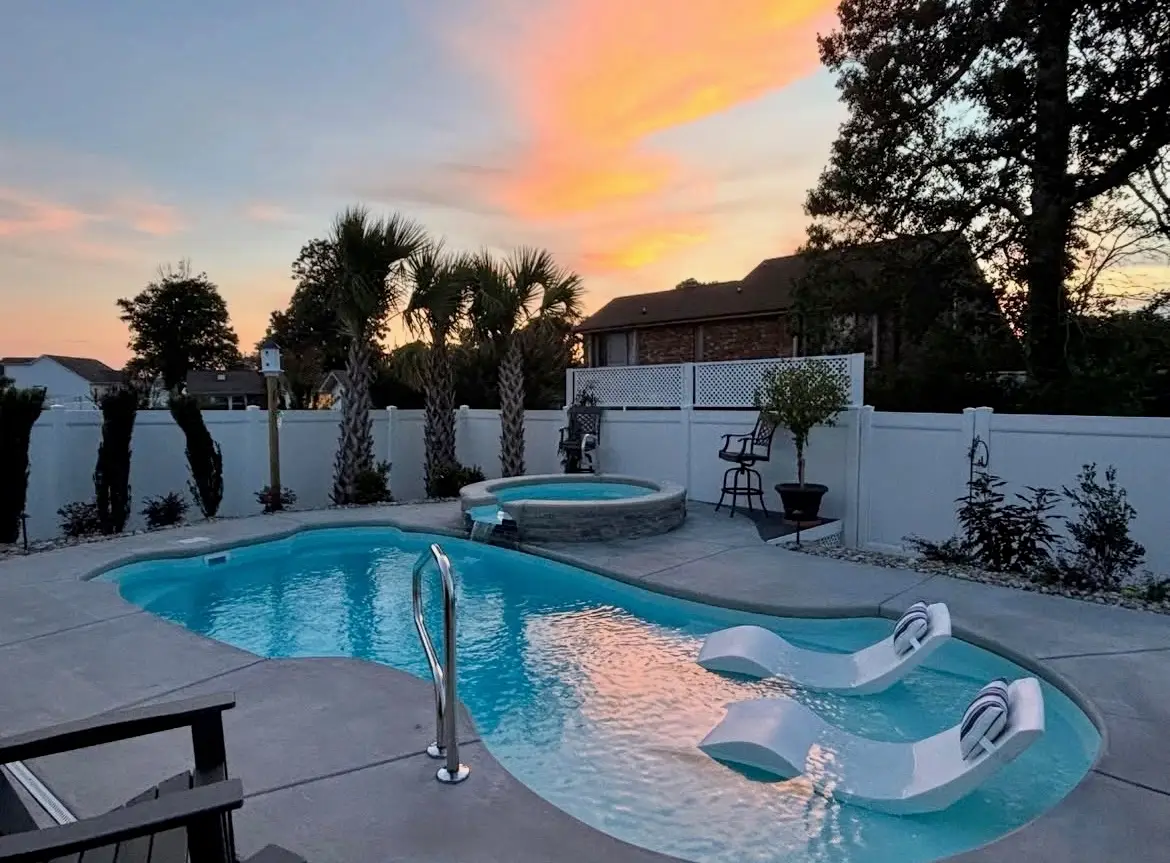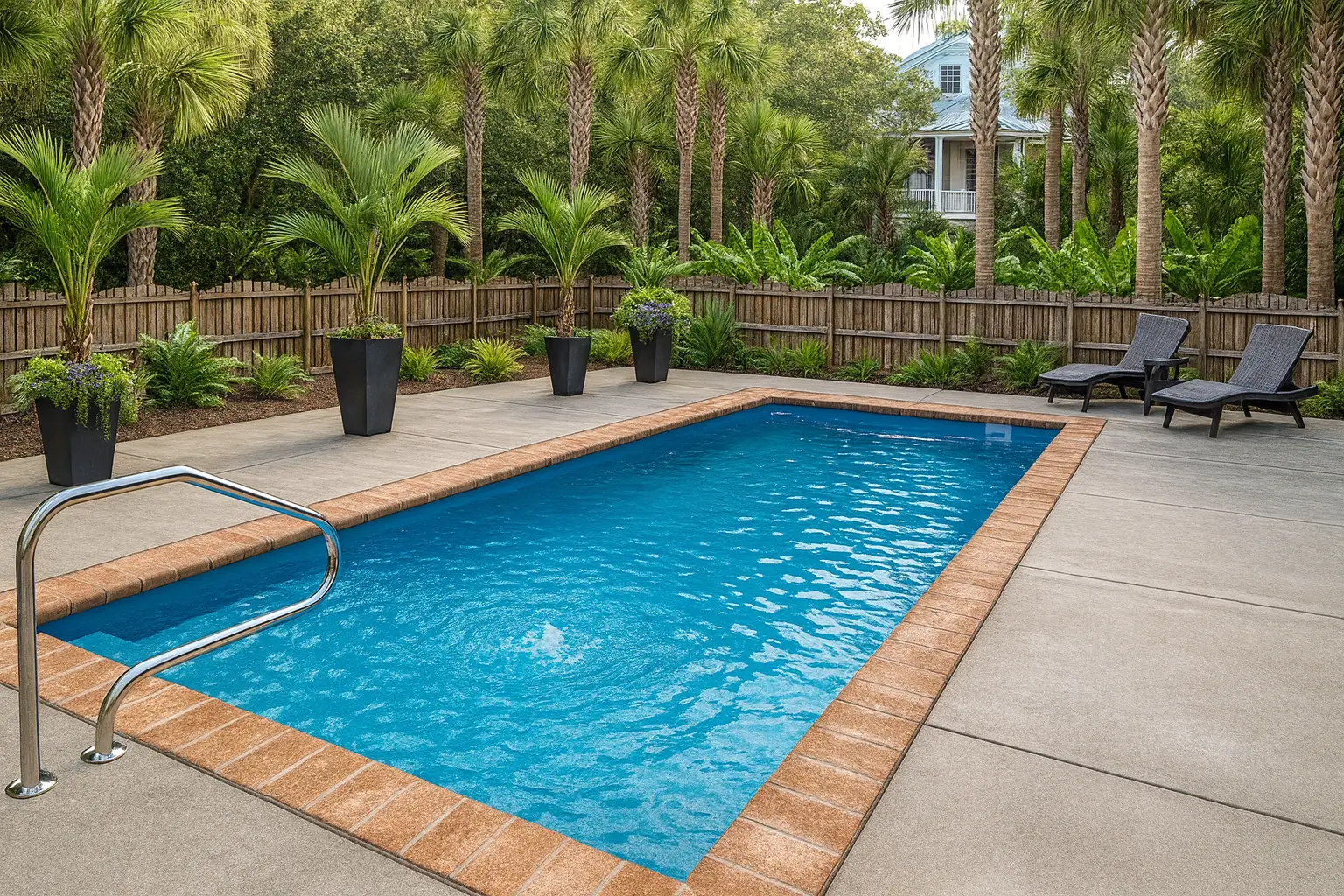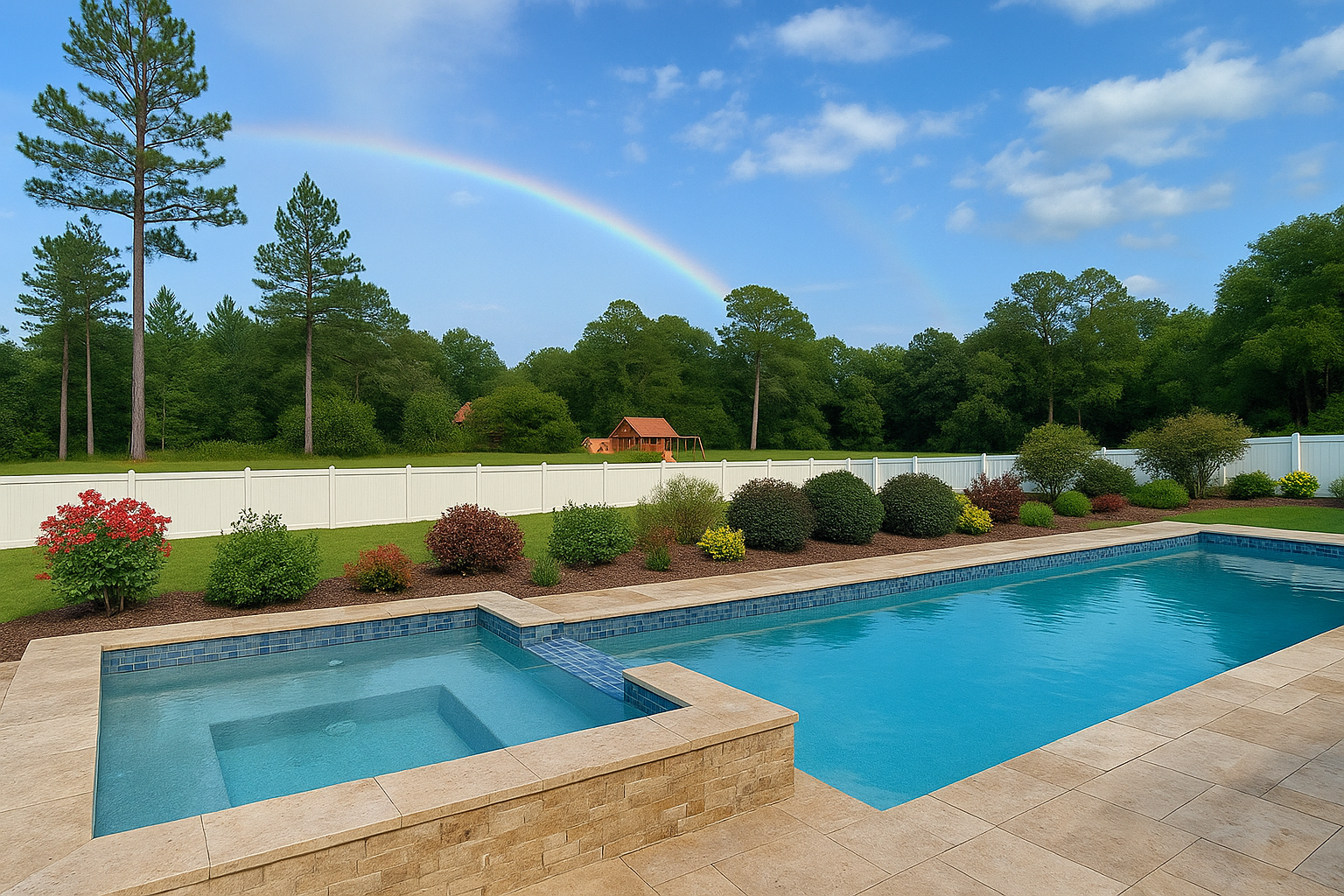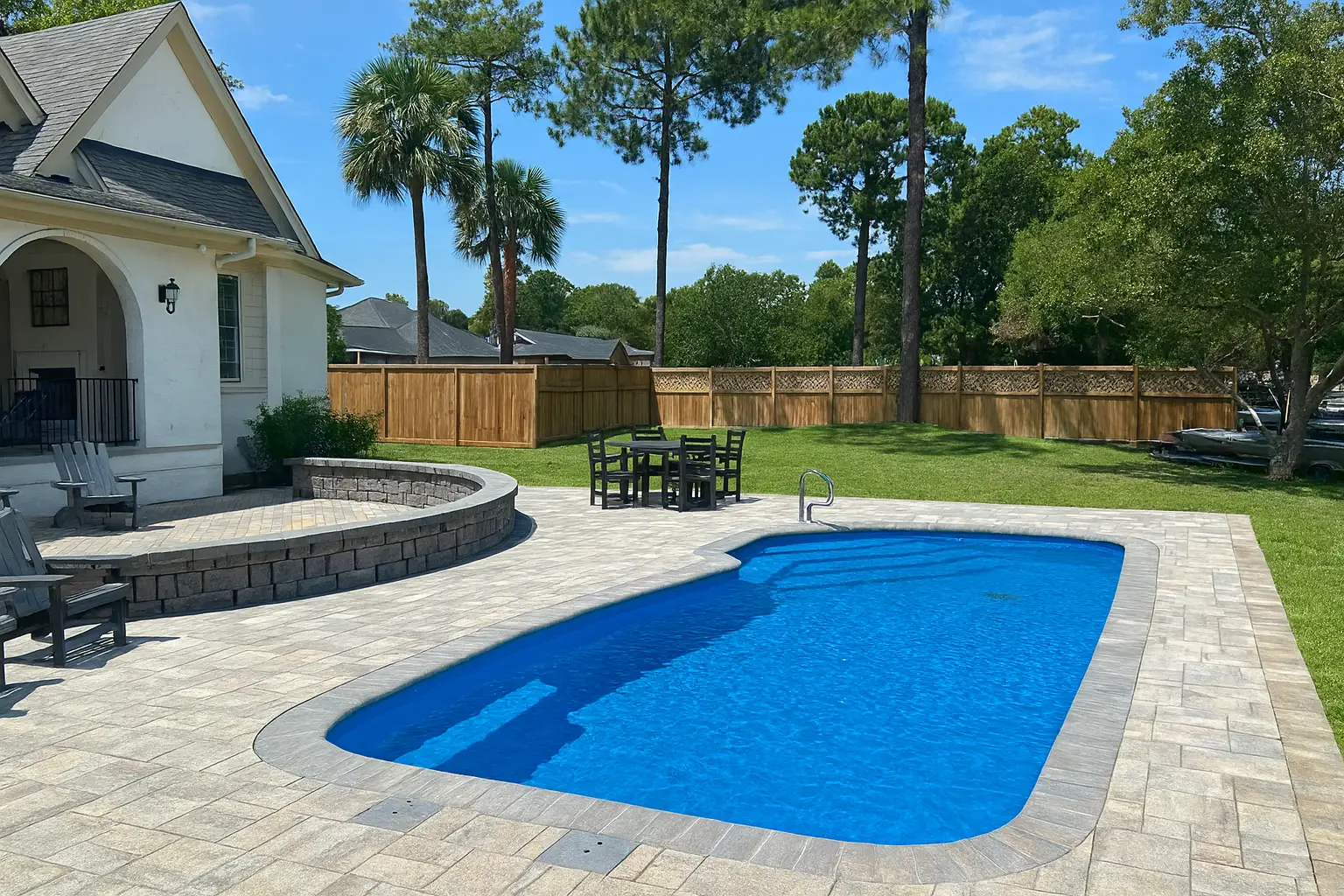The Smarter, Faster, and Stronger Choice for Modern Homeowners
For years, concrete (gunite) pools were the default choice. Today, fiberglass pools have taken the lead — offering faster installation, lower maintenance, and unmatched durability. Rainforest Pools builds every shell in America using advanced composites designed to handle Florida’s heat, humidity, and sandy soils. Here are 10 reasons homeowners are making the switch.
1. Faster Installation
Fiberglass pools install in as little as 2–3 weeks.
Concrete pools often take two to three months to complete. Because Rainforest pools are pre-molded, your installer simply excavates, sets the shell, connects plumbing, and backfills — fast, clean, and ready to enjoy sooner.
2. Lower Lifetime Cost
No resurfacing. No liners. No hidden costs.
Concrete pools require acid washing, tile replacement, and resurfacing every 10–15 years. Fiberglass pools keep their glossy finish for decades, saving thousands in upkeep.
3. Minimal Maintenance
The smooth surface prevents algae and staining.
Concrete’s porous texture breeds algae, demanding weekly scrubbing and heavy chemical use. Fiberglass stays smooth, reducing chemical costs and cleaning time by up to 40%.
4. Cooler, More Comfortable Surface
Fiberglass stays cooler under the Florida sun.
The gelcoat surface reflects heat, keeping water and deck temperatures comfortable — even in mid-summer. Concrete can reach surface temps 10–15°F hotter.
5. Non-Porous & Chemical Efficient
Fiberglass uses fewer chemicals and less chlorine.
Because the shell is non-porous, pH stays stable longer. Homeowners enjoy crystal-clear water without constant balancing.
6. Engineered for Stability
Built to flex — not crack.
Concrete pools are rigid and can crack under soil movement or settling. Fiberglass shells are engineered to flex slightly, ideal for Florida’s sandy soils and high water table.
7. Beautiful Designs & Built-In Features
Choose from modern shapes, tanning ledges, and spas.
Each Rainforest model comes ready with molded steps, benches, and seating areas. Concrete pools require these to be built and finished separately — adding cost and time.
8. Perfect for Saltwater Systems
No corrosion or rough surfaces.
Salt systems are common in Florida, and fiberglass is the best match. The smooth, inert surface resists salt damage and keeps the finish beautiful for decades.
9. Lifetime Structural Warranty
Peace of mind that concrete can’t match.
Rainforest Pools backs every shell with a lifetime structural warranty — something few concrete builders can offer. Your investment is protected from day one.
10. Long-Term Value & Resale Appeal
Adds beauty and reliability to your property.
Homebuyers love low-maintenance fiberglass pools. They know the upkeep is minimal and the look lasts — making your home stand out in the Florida market.
The Bottom Line
Concrete had its time. Fiberglass has perfected the process — stronger materials, faster installation, and less maintenance for life.
When you choose Rainforest Pools, you’re investing in a pool that performs beautifully in Florida’s climate and adds value for decades.

Ready to Dive In?
Ready to Explore Fiberglass Pool Options?
Complete walkthrough from planning to finishing touches Cost breakdowns and financial planning Comparison of materials: installation, maintenance, durability Explores ways to personalize your pool—integrated features, finishes, decking styles, and how each choice impacts look and function. Covers key advantages like smooth, non-porous surfaces, durability, and long-term low maintenance. Insights on how fiberglass pools withstand elements over time and what makes them a lasting backyard investment. Practical troubleshooting for common issues and how to address them In-depth comparisons between Rainforest models and alternatives—ideal for narrowing down choices. Top arguments in favor of fiberglass over concrete pools




